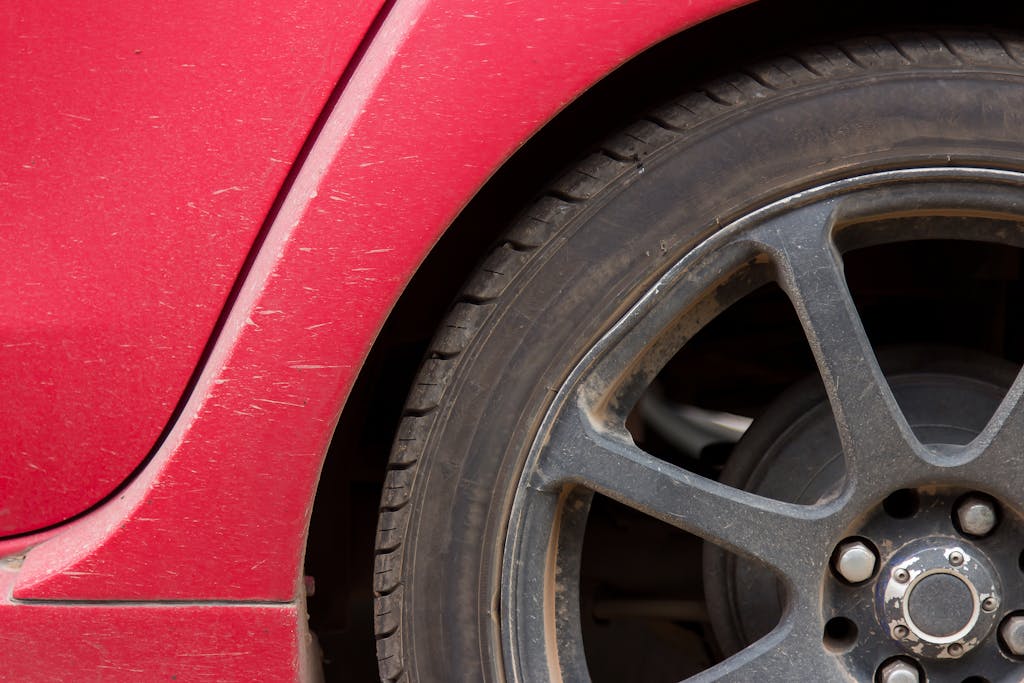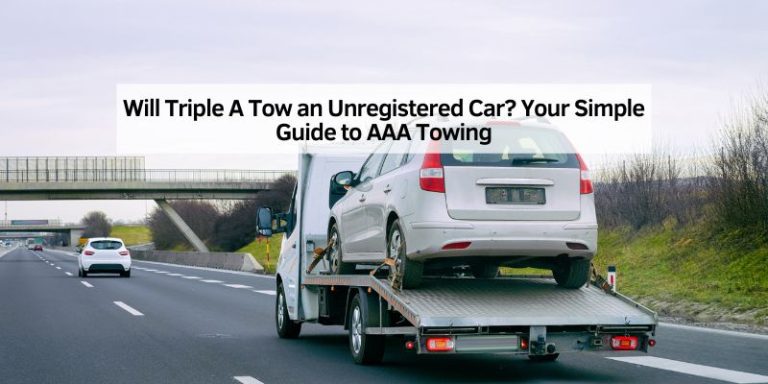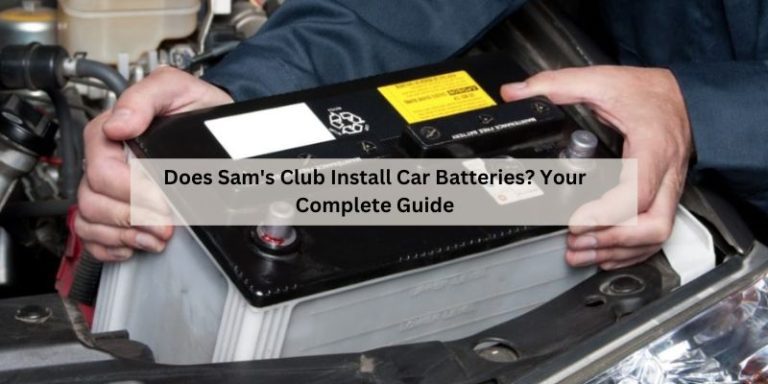Can a Tire Blowout Damage Your Car?: Protecting Your Vehicle from Potential Devastation
A tire blowout can potentially cause extensive damage to your car’s suspension and body. A tire blowout can be a frightening experience for any driver.
It occurs when a tire suddenly bursts while the vehicle is in motion, leading to the loss of control. Besides the immediate danger, it is essential to consider the potential long-term damage a tire blowout can have on your car.
The force and sudden loss of pressure from a blowout can cause the tire to shred, resulting in fragments being propelled at high speeds. These fragments can collide with the car’s body, suspension, or any nearby components, causing dents, scratches, or even punctures. In some cases, the blowout might also lead to damage to the wheel wells, undercarriage, or even the fenders. It is crucial to address any potential damage promptly to ensure your car remains safe and functional.
Understanding Tire Blowouts
A tire blowout can cause significant damage to your car. It can lead to loss of control, damage to the wheel rims, suspension components, and even the body of the car. Proper tire maintenance and regular inspections can help prevent blowouts and protect your vehicle.
What Causes A Tire Blowout?
In order to understand tire blowouts, it’s important to first explore the causes behind them. A tire blowout refers to the sudden and rapid loss of air pressure in a tire, resulting in a potentially dangerous situation for drivers and their vehicles. There are several factors that can lead to a tire blowout, including:
- Underinflation: One of the most common causes of tire blowouts is driving with tires that are significantly underinflated. When tires aren’t properly inflated, it puts excessive pressure on the tire sidewalls, making them more vulnerable to damage.
- Overloading: Carrying a heavy load beyond the recommended capacity can put strain on the tires, leading to blowouts. It’s important to always adhere to the vehicle manufacturer’s weight guidelines.
- Tire Age: As tires age, the rubber can deteriorate and become more susceptible to blowouts. Heat and exposure to harsh weather conditions can accelerate this process, so it’s crucial to regularly inspect and replace aging tires.
- Tire Damage: Punctures, cuts, bulges, or other forms of damage to the tire can weaken its structure, making it prone to blowouts. It’s important to regularly inspect tires for any signs of damage and address them promptly.
- Overheating: Excessive heat generated by high speeds and prolonged driving can cause the tire to overheat, leading to a blowout. This is particularly true for tires that are already underinflated or damaged.
Identifying The Signs Of An Impending Blowout
Spotting the warning signs of a tire blowout before it happens can help prevent a potentially dangerous situation. Keep an eye out for the following indications:
- Low tire pressure: If you notice persistent low tire pressure despite regular inflation, it could be a sign of a slow leak or impending blowout. Check your tire pressure regularly to identify any abnormalities.
- Visible damage: Inspect your tires for any cuts, cracks, bulges, or punctures. These can weaken the tire’s structure and increase the risk of a blowout.
- Uneven tread wear: Uneven tire tread wear can indicate an alignment or suspension problem, putting additional stress on the tires and making blowouts more likely.
- Vibration or wobbling: Excessive vibration or wobbling while driving can be a sign of tire issues. It’s crucial to have the tires inspected if you experience these symptoms.
- Unusual noises: Any unusual noises coming from the tires, such as thumping, can indicate a potential problem that should be addressed promptly.
The Dangers And Consequences Of A Tire Blowout
A tire blowout can have serious consequences for both the driver and the vehicle. The sudden loss of control accompanied by a blowout can lead to:
- Loss of vehicle control: When a tire blows out, it can cause the vehicle to veer sharply in the direction of the blowout, making it difficult to maintain control of the vehicle.
- Accidents and collisions: The loss of control during a tire blowout increases the risk of accidents and collisions, especially if the driver is unable to regain control in time.
- Vehicle damage: Blowouts can cause significant damage to the vehicle, including bent wheels, suspension damage, and other mechanical failures.
- Injury or fatality: In severe cases, a tire blowout can lead to serious injuries or even fatalities for both the driver and occupants of the vehicle, as well as other road users.
In conclusion, understanding tire blowouts, their causes, and the signs of an impending blowout is crucial for every driver. Regular maintenance, proper tire inflation, and immediate attention to any signs of damage can help prevent the dangers and consequences associated with tire blowouts.
How A Tire Blowout Can Damage Your Car
When it comes to tire blowouts, the immediate concern may be your safety on the road. However, it’s important to understand that a tire blowout can also cause significant damage to your vehicle. In this section, we will explore the various ways in which a tire blowout can impact your car, from the immediate loss of vehicle control to the potential risks of swerving and rollovers. Additionally, we will delve into the damage that can occur to the wheel assembly and suspension system. Let’s take a closer look at these factors and their implications.
The Immediate Impact On Vehicle Control
When a tire blows out, the sudden loss of air pressure can disrupt the balance and stability of your vehicle, resulting in a loss of control. This can be a terrifying experience, especially at higher speeds. Without proper control, it becomes challenging to maneuver the car safely, potentially leading to accidents and collisions.
The Risk Of Swerving And Rollovers
One of the most significant dangers associated with a tire blowout is the risk of swerving and rollovers. As the blown-out tire rapidly deflates, it can cause the vehicle to swerve abruptly towards the side of the blowout. The abrupt movement can catch drivers off guard and make it difficult to regain control. If the vehicle swerves sharply, it can lead to rollovers, which pose a severe threat to the safety of passengers inside the car.
Damage To The Wheel Assembly And Suspension System
Aside from the immediate consequences on vehicle control, tire blowouts can cause damage to the wheel assembly and suspension system. The sudden loss of air pressure and the subsequent impact of the wheel against the road can inflict substantial damage to the rim, causing bends, cracks, or even complete failure. Furthermore, the force exerted on the suspension components, such as the struts, shocks, and control arms, can lead to misalignment, bent or broken parts, and expensive repairs.
Protecting Your Vehicle From Potential Devastation
When it comes to the safety and longevity of your car, one issue that often gets overlooked is the possibility of a tire blowout. Not only can a tire blowout put you and your passengers in immediate danger, but it can also cause severe damage to your vehicle if not handled properly. Therefore, taking preventive measures to protect your vehicle from potential devastation is crucial. By implementing regular tire maintenance and inspections, knowing the correct tire pressure and load limits, and investing in quality tires and safe driving practices, you can significantly reduce the risk of a tire blowout and its resulting damage.
Regular Tire Maintenance And Inspections
Regular tire maintenance and inspections are the foundation of preventing tire blowouts and safeguarding your car from potential damage. Ensure your tires are in top condition by following these tips:
- Check for any signs of wear and tear, such as cracks, bulges, or punctures.
- Maintain proper tire pressure, as underinflated or overinflated tires can increase the chances of a blowout.
- Inspect the tire tread depth regularly. Worn-out tread reduces traction and increases the risk of a blowout.
- Rotate your tires regularly to promote even wear and extend their lifespan.
- Keep an eye on the tire alignment, as misaligned tires can lead to uneven wear and decrease the overall stability of your vehicle.
Knowing The Correct Tire Pressure And Load Limits
Understanding and adhering to the recommended tire pressure and load limits is crucial for preventing a blowout and protecting your vehicle. Follow these guidelines:
| Tire Pressure | Load Limits |
|---|---|
| Regularly check your tire pressure using a pressure gauge and maintain it according to the specifications provided by the manufacturer. | Never exceed the maximum load capacity indicated on your tires. Overloading can put excessive strain on the tires, leading to premature wear and potential blowouts. |
Investing In Quality Tires And Safe Driving Practices
Investing in high-quality tires and practicing safe driving habits go hand in hand in protecting your vehicle from a tire blowout. Consider the following:
- Choose tires that are suitable for the driving conditions you regularly encounter. Quality tires with strong construction and reliable tread patterns can withstand various road hazards and pressures.
- Replace your tires when they reach the recommended mileage limit or show signs of significant wear.
- Observe safe driving practices, such as avoiding sudden braking or accelerating, steering clear of potholes and debris, and maintaining a safe distance from vehicles in front of you.
Conclusion
A tire blowout is not only dangerous but can also lead to potential damage to your car. From compromised suspension components to alignment issues, the aftermath of a blowout can be costly. Regular tire maintenance and inspection are crucial in preventing blowouts and preserving the integrity of your vehicle.
Remember, a proactive approach can save you from the headache of dealing with car damage and ensure your safety on the road. Stay informed, perform regular checks, and always seek professional help when needed.







